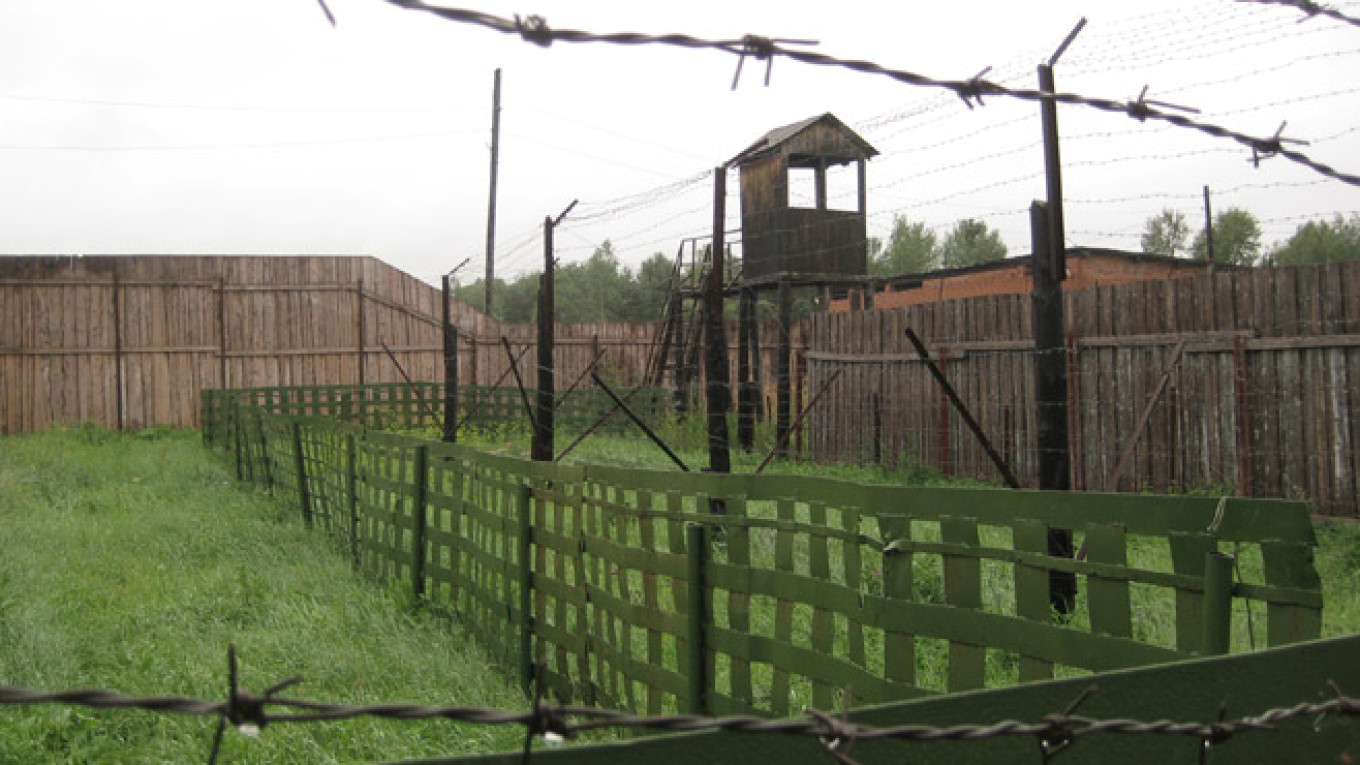A museum commemorating the victims of Soviet-era political repressions is closing down after months of government pressure.
Perm-36 — the only museum in Russia created on the site of a former gulag camp ?€” is "ceasing its activities and beginning the process of self-liquidation," the museum said in a statement Monday.
See pictures of Perm-36 when it was still open.
The shutdown comes at a time when the number of Russians viewing Soviet dictator Josef Stalin positively has risen to more than half of the population (52 percent), according to a recent Levada Center poll, and amid heightened government rhetoric extolling Soviet-era achievements.
Government investigators reportedly inspected Perm-36 ?€” named for the infamous labor camp on whose site it was created more than two decades ago ?€” for "extremism" last year, following a complaint by a television viewer who felt prompted to act by a program aired by state-run broadcaster NTV titled "Fifth Column."
The program argued that the museum vindicated Lithuanian and Ukrainian nationalists who had been imprisoned in the labor camp for fighting against the Soviet Union, newspaper Kommersant reported at the time.
The museum, located in the village of Kuchino in the Perm region, said that attempts to negotiate with the regional administration "about preserving Perm-36 as a real museum of the history of political repression in the U.S.S.R. and as a unique historical monument have proven unsuccessful."
All attempts by the human rights group that runs the museum to preserve it "have been exhausted," the statement said.
Since the Perm regional administration approved the establishment of the museum, its employees have restored "nearly all buildings and constructions on the territory of the memorial," according to the museum's website.
The work appears to have been helped by an increase in public funding and attention that came after the World Monuments Fund listed Perm-36 on its 2004 "world monuments watch," a list of endangered heritage sites around the world, according to the historical preservation group's website.
Perm-36 was also nominated for a UNESCO designation as a world heritage site, the museum said on its website.
But "starting in 2012, the attitude of the regional authorities toward the monument and museum has changed drastically," the statement said. "The financing of restoration work has completely stopped, and so has the campaigning for including the museum in the UNESCO World Heritage list."
After cutting the museum's funding, the local authorities also reportedly disconnected its water and electricity supplies last spring, citing unpaid bills.
Human rights activists and cultural figures have appealed to the government to preserve the museum, and thousands of people have signed petitions on its behalf, Perm-36 said in a statement thanking Russians for their support and saying its activists would continue research into "understanding the tragic experience of our country's history." The work will be largely confined to "academic, scaled-down" efforts, the statement said.
Contact the author at newsreporter@imedia.ru
A Message from The Moscow Times:
Dear readers,
We are facing unprecedented challenges. Russia's Prosecutor General's Office has designated The Moscow Times as an "undesirable" organization, criminalizing our work and putting our staff at risk of prosecution. This follows our earlier unjust labeling as a "foreign agent."
These actions are direct attempts to silence independent journalism in Russia. The authorities claim our work "discredits the decisions of the Russian leadership." We see things differently: we strive to provide accurate, unbiased reporting on Russia.
We, the journalists of The Moscow Times, refuse to be silenced. But to continue our work, we need your help.
Your support, no matter how small, makes a world of difference. If you can, please support us monthly starting from just $2. It's quick to set up, and every contribution makes a significant impact.
By supporting The Moscow Times, you're defending open, independent journalism in the face of repression. Thank you for standing with us.
Remind me later.


